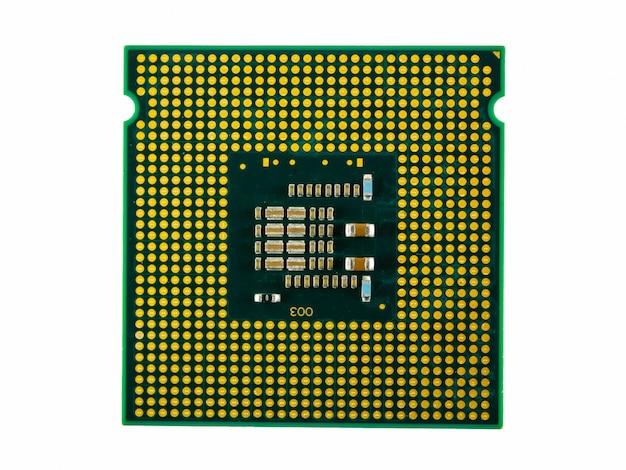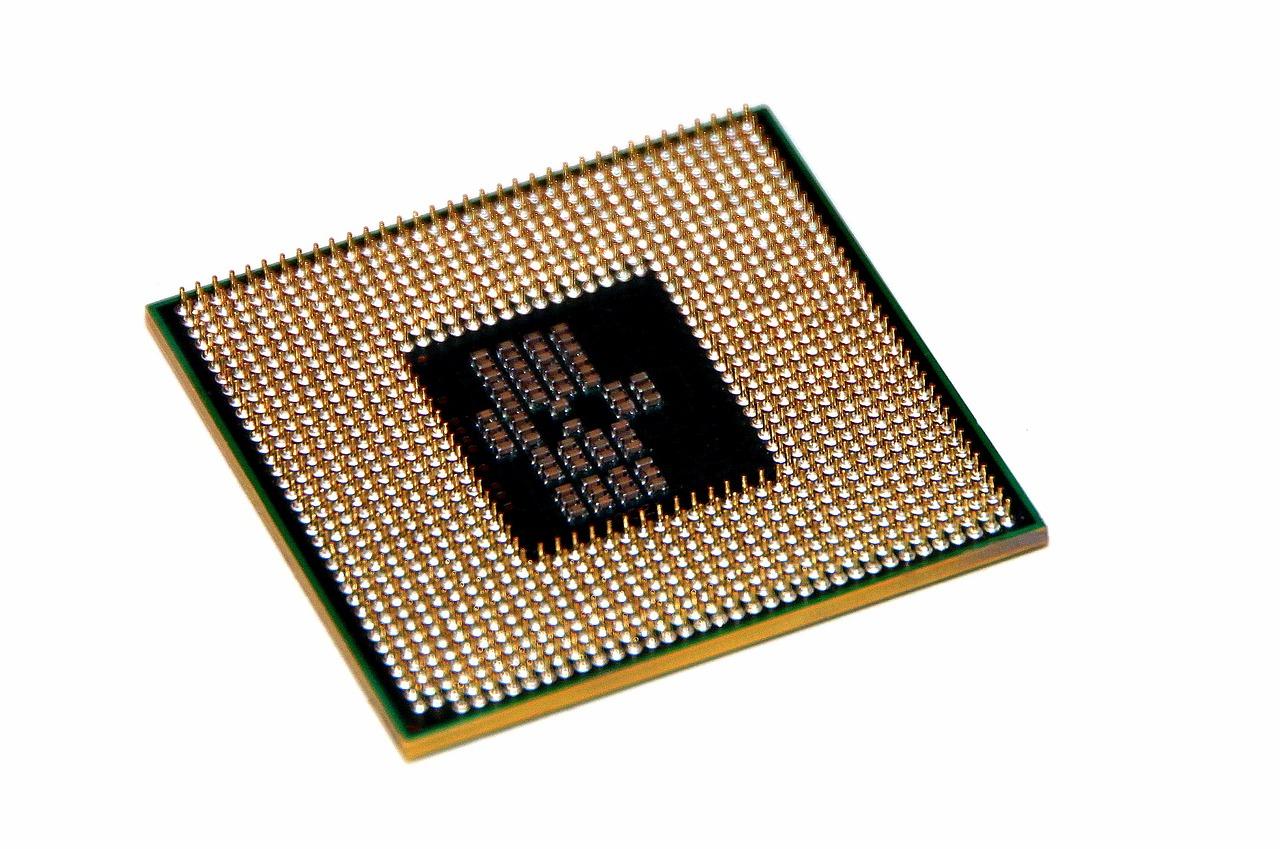In today’s world of technology, it’s essential to understand the differences between different computer processors. Two popular options in the market are Intel Celeron and Intel Core. If you’re in the market for a laptop or desktop computer, you may have come across these names, but what exactly sets them apart?
In this blog post, we’ll dive into the similarities and differences between Intel Celeron and Intel Core processors. We’ll discuss their performance, capabilities, and which one could be the best fit for your specific needs. So, whether you’re a tech enthusiast or a casual computer user, join us as we unravel the mysteries of these processors and help you make an informed decision.

What is the Difference Between Intel Celeron and Intel Core
If you’ve recently shopped around for a new computer or laptop, you may have come across the terms “Intel Celeron” and “Intel Core” processors. While both are manufactured by Intel, they cater to different needs and computing abilities. In this subsection, we’ll delve into the exciting world of processors and explore the differences between these two popular options.
Computing Power Showdown: Celeron vs. Core
When it comes to sheer computing power, Intel Core processors steal the spotlight. These bad boys pack a punch with their formidable processing capabilities, making them the preferred choice for power users, gamers, and professionals who demand top-notch performance from their machines.
On the other hand, Intel Celeron processors are more like the trusty sidekicks of the processor world. They may not be the fastest or most powerful, but they get the job done for everyday tasks and basic computing needs. Think of them as the reliable worker bees that keep things running smoothly without breaking the bank.
Cores, Threads, Speed, Oh My!
One of the primary differences between Intel Celeron and Intel Core processors lies in their core and thread counts. Without getting too technical, cores are like mini processors within the main processor, while threads allow for better multitasking capabilities.
Intel Core processors generally offer higher core and thread counts, allowing for faster and more efficient multitasking. This means smoother performance when running multiple applications or demanding software. Celeron processors, while capable of handling everyday tasks, have fewer cores and threads, resulting in slower execution for resource-intensive activities.
Not only do Intel Core processors typically have more cores and threads, but they also tend to operate at higher clock speeds. Clock speed refers to how quickly the processor can execute instructions per second. Higher clock speeds translate to quicker and more responsive computing experiences.
Graphics and Gaming Performance
If you’re a gaming enthusiast or rely heavily on graphics-intensive applications, Intel Core processors have the upper hand. Many Core processors come equipped with integrated graphics that provide better performance for playing games or editing visuals.
While Celeron processors also feature integrated graphics, they don’t offer the same level of graphical prowess as their Core counterparts. If you’re a casual gamer or occasionally dabble in graphic design, Celeron processors will still get the job done.
Efficiency and Battery Life
Another aspect to consider is power consumption and battery life. Intel Core processors tend to draw more power compared to Celeron processors. This higher power consumption is a tradeoff for the enhanced performance they offer. If you’re always on the go and prioritize extensive battery life, a device equipped with a Celeron processor may be a better fit.
What’s the Bottom Line
To sum it all up, the main difference between Intel Celeron and Intel Core processors lies in their power and performance capabilities. If you’re a casual user, primarily engaging in web browsing, document editing, or streaming videos, a Celeron processor will do the trick. However, if you’re a power user, gamer, or professional requiring demanding software, an Intel Core processor will provide the processing power you need.
In the end, the choice between the two ultimately depends on your individual needs, budget, and how you plan to use your device. Regardless of which processor you choose, both Intel Celeron and Intel Core can handle everyday tasks while keeping your digital journey enjoyable and productive.

FAQ: What is the difference between Intel Celeron and Intel Core
Is Intel Celeron better than Intel Core
No, my tech-savvy friend, Intel Celeron is not better than Intel Core. Intel Core processors are the superheroes of the computer world, packing a powerful punch that leaves Intel Celeron feeling a little green with envy. They are built to handle demanding tasks and deliver superior performance. So, if you’re looking for speed and efficiency, Intel Core is the way to go.
What is the difference between Intel Celeron and Intel Core
Ah, the eternal question in the realm of processors! Let me break it down for you. Intel Celeron is like the reliable sidekick, capable of handling everyday computing tasks with ease. It’s perfect for browsing the web, checking emails, and working on basic office applications. On the other hand, Intel Core is the fearless superhero, designed for power-hungry activities like gaming, video editing, and multitasking. It’s armed with more cores, cache, and clock speed, making it the go-to choice for those who need lightning-fast performance.
Is Intel Celeron quad-core
Well, not quite. Back in the day, Intel Celeron used to be dual-core, but now it has embraced the quad-core life. However, it’s important to note that not all Celeron processors are born equal. Some of them still come with dual-core configurations, while others have leveled up to quad-core. So, if you’re eyeing a Celeron, be sure to check if it’s got that extra oomph you desire.
What is faster: Pentium or Celeron
Ah, the age-old showdown between the Intel siblings! When it comes to speed, Pentium takes the crown in this battle. Think of Pentium as the slightly older sibling who has mastered a few more tricks. It often boasts better performance, more cache, and a higher clock speed compared to Intel Celeron. So, if you’re looking for a budget-friendly processor that can still deliver a decent performance, Pentium might be your best bet.
Is Intel Celeron the worst
Oh, poor Intel Celeron, always getting a bad rap! While it may not be the star of the processor universe, it certainly has its place in the grand scheme of things. If you’re a casual user who doesn’t demand too much from your computer, Intel Celeron can be a reliable and affordable option. It may not excel in high-performance tasks, but it gets the job done for everyday computing needs. So, let’s not be too harsh on our humble Celeron friend, shall we?
And there you have it, my curious readers! The lowdown on the difference between Intel Celeron and Intel Core. Remember, when choosing a processor, it’s essential to consider your specific needs and budget. Whether you go with the trusted Celeron or the mighty Core, both have their unique strengths. Happy computing in this exciting year of 2023!
